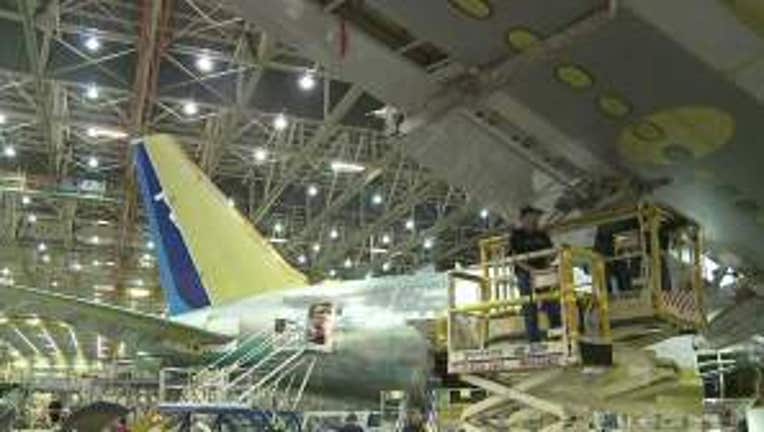FAA clears the way for grounded Boeing 787 to return to flight

The Federal Aviation Administration approved Boeing Co.’s proposed fix for the lithium-ion battery systems on its 787 passenger jets, which have been grounded since January.
The FAA said it will require airlines flying 787s to install containment and venting systems for the batteries. The agency also will instruct carriers to replace the batteries and their chargers with modified components.
FULL COVERAGE: Boeing's troubled Dreamliner
To make sure the work gets done, the FAA has teams of inspectors on-site at the modification spots. The FAA said it would not allow any modified 787 to take to the sky until it approves the work.
“Safety of the traveling public is our number one priority,” Transportation Secretary Ray LaHood said in a statement. “These changes to the 787 battery will ensure the safety of the aircraft and its passengers.”
The FAA said it will support international authorities working toward finalizing their own acceptance procedures.
The FAA’s move to get the 787 fleet airborne again comes two weeks after Boeing completed one certification demonstration flight that took 1 hour and 49 minutes.
Boeing and FAA officials have been busy addressing concerns about the company's new flagship jet, which has been grounded worldwide since Jan. 16 after two overheating incidents within two weeks involving the battery systems.
On March 14, the Chicago company unveiled a plan to fix the 787 battery system. It involves insulating and spacing out parts in the battery unit, reducing charging levels so that the battery cannot be overcharged and enclosing the lithium-ion batteries in stainless-steel cases so that little oxygen can get at them.
The redesign removes any risk of a fire breaking out within the battery system, the company said.
Boeing has delivered 50 787s to eight airlines worldwide. Six are owned by United Airlines, the only U.S. carrier that has 787s in its fleet.
All 787s were grounded after a battery fire broke out Jan. 6 on a 787 operated by Japan Airlines at Boston's Logan International Airport and a second battery incident occurred 10 days later on an All Nippon Airways flight in Japan.
The 787's battery system, which is made in Japan by Kyoto-based GS Yuasa Corp., contains a cluster of eight individual cells packaged together in one box.
The National Transportation Safety Board has been investigating the matter, as have officials from Boeing, the FAA, the Navy, Japan and France.
Not one of them has found a cause for the incidents.
Despite the problems, Boeing's stock has risen 14% this year, trading Friday was up $1.50, or 1.7%, at $87.62.
--W.J. Henningan, Los Angeles Times

